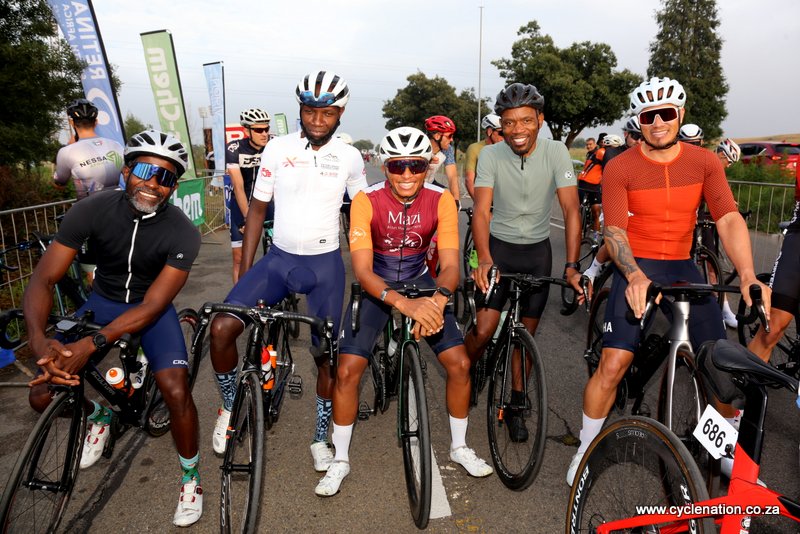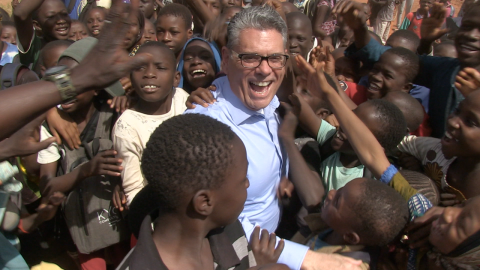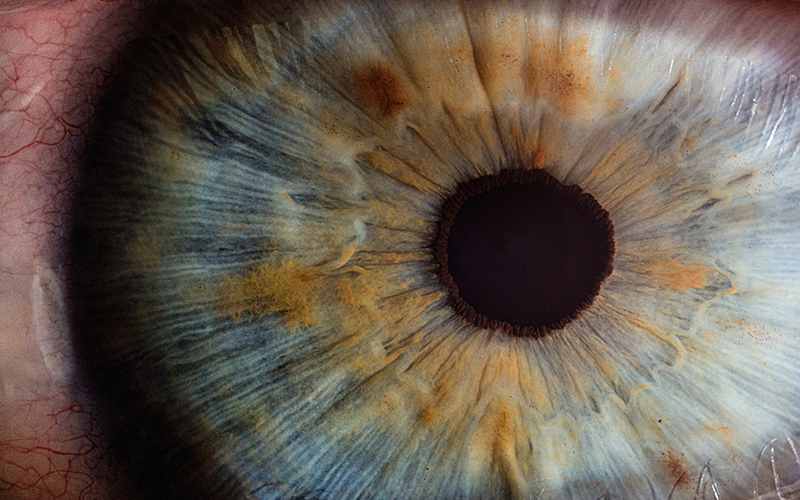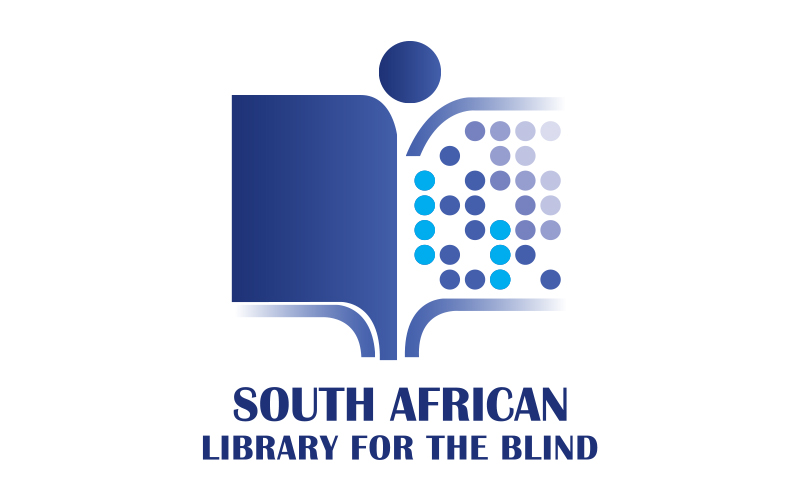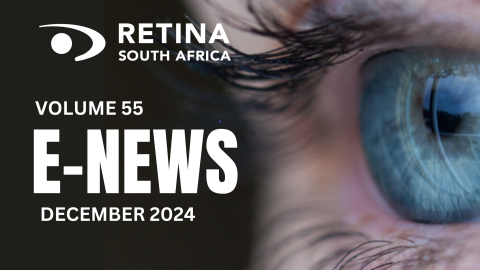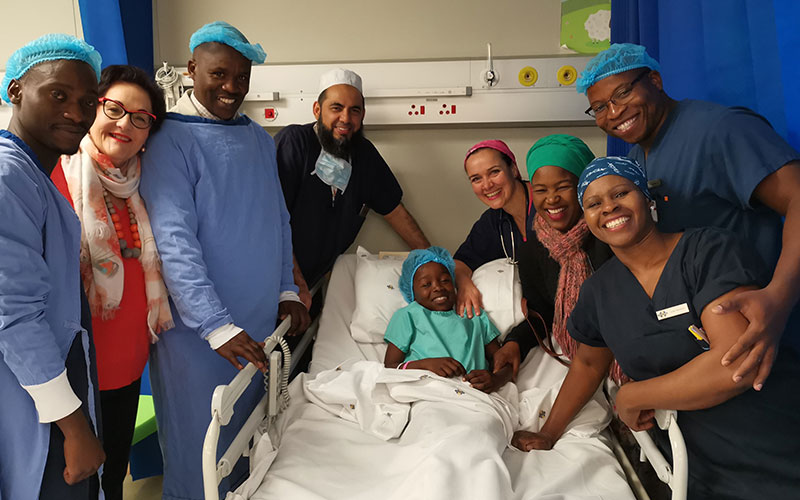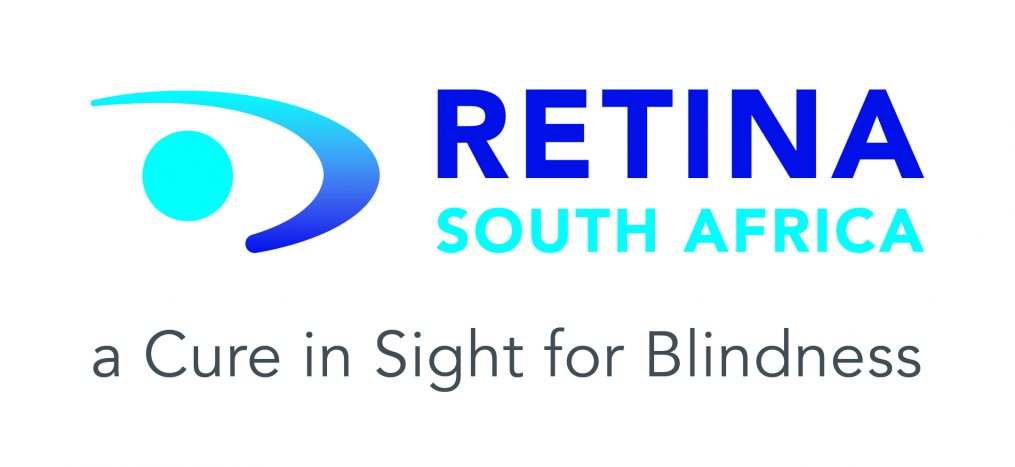
DIS-CHEM RIDE FOR SIGHT 2023
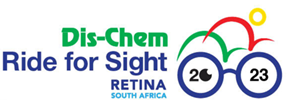
The 34th Dis-Chem Ride for Sight, proudly sponsored by Dis-Chem Pharmacies was held at Boksburg City Stadium on Sunday 19th February.
The popular road race attracted a field of almost 2700 loyal supporters. The event was won for the second year by Joshua van Wyk, and Lize-Ann Louw won the women’s race. The Disabled Tandem Prize was won by Gavin Kilpatrick and Roberto Gnudi. There was an excellent turnout for this category and we hope more partially sighted cyclists will be encouraged to participate next year.
Thanks to the Dis-Chem Foundation, who matched the donations from the cyclists who entered the donation draw. A superb Orbea gravel bike sponsored by CycleLab helped raise almost R50 000 from the competition. For a full race report and picture gallery please see our website.
We thank Dis-Chem Pharmacies, Dis-Chem Foundation, our generous sponsors, our volunteer organising committee, and our loyal supporters who cycled to restore the gift of sight. Over the last 34 years, the event has raised well over R10m and ensured South African patients will have access to emerging treatments for retinal blindness.
NEW VISION AND MISSION
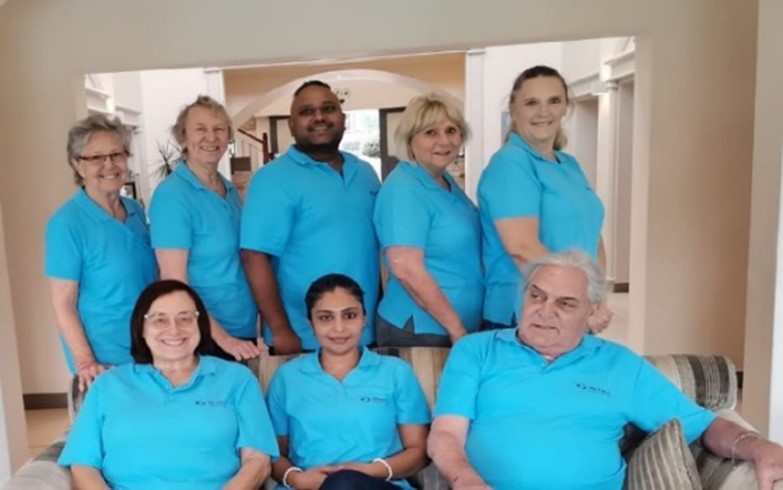
Management Committee and Key Staff: Pictured from left back: Karen Denton, Claudette Medefindt, Chairman: Manny Moodley, Jean Bowler, Sandy Brown. Front: Caryl Baum, Sonya Mahabeer, and Anton van Rooyen
The Management Committee and key staff members met for a strategic session in March. A SWOT analysis highlighted many new opportunities and identified the way forward during these challenging post-Covid times. The new Vision and Mission can be found on our webpage and are incorporated in our main webpage declaration.
SUBCOMMITTEES REVAMP
The Sub Committees have been revamped and some amalgamated. These are: Fundraising and Marketing; Science and Patient Services; Advocacy, Awareness, and Education. Administration and Governance are still stand-alone sub- committees. If you would like to join one, please contact us. You will need to participate in an hour long virtual monthly meeting and spend some time reading and replying to emails.
COVID, DIABETES, AND YOU
By Karen Denton
Covid hit us all very unexpectedly, and now research shows us that we are still subject to many unexpected, untoward results.
One of the major effects that is being felt even years after the peak of the pandemic is the dramatic effect of diabetes.
It is now being found that even years after any Covid infection people are developing diabetes at an alarming rate. Recent reports indicate that up to 50% of people who suffered even a mild Covid infection are at risk for diabetes. You can read recent examples of this research on reliable sources such as https://www.cedars-sinai.org/newsroom/verified-covid-19-infection-increases-diabetes-risk/. Unfortunately, diabetes has a very dramatic effect on the body and in fact, diabetes is a major cause of blindness (and other serious consequences) in the world today. However, on the positive side, there is much we can do to curb the effects of diabetes. We know that much of this is easier said than done because it often entails changing lifelong habits. But, if your aim is to remain fit and healthy, maybe some lifestyle adaptations could be of great benefit to you.
There are two very important factors relating to diabetes, and lifestyle is the key to both. What foods should you eat? To make life easier you should choose foods from every colour of our South African flag every day. Green leafy vegetables contain antioxidants that protect your eyes from damage, so include these wherever you can.
You should also be aware that efficient insulin function in our bodies depends on movement. Therefore, movement as part of everyone’s daily routine is a must. We don’t say rush out and join a gym or run marathons. But we do say keep moving and avoid being a couch potato. Remember, it is always advisable to get medical advice before strenuous exercise. And of course, we don’t have to remind you that smoking accelerates the damage from diabetes.
It is equally important to ensure that alcohol is consumed in moderate amounts, which means a daily intake of one glass of wine, or a tot of spirits or a light beer.
Try to avoid overdoing it.
Are you aware that sleep is also essential for health and ensuring that you get enough sleep at more or less the same time every day is important?
There is so much one can say about lifestyle. So consult experts in the field or contact us at headoffice@retinasa.org.za or via our website www.retinasa.org.za
[Editors note: Do you know that Photoreceptor Discs are regenerated during deep sleep? Catch the Sleep Diplomat Dr. Mathew Walker on YouTube to learn of the amazing health and brain benefits of good sleep patterns.]
RESEARCH NEWS
RETINITIS PIGMENTOSA [RP]
• OPTOGENETICS
In RP the photoreceptors degenerate and are eventually no longer able to respond to light. Research in Optogenetics aims to bypass the photoreceptors and confer light sensitivity to other, intact retinal neural cells. A Phase 2b clinical trial in Nanoscopes Optogenetic trial “Restore” has shown some positive results. The trial is to test the effect of MCO-010, an ambient-light activatable optogenetic monotherapy. They have developed a modified virus to deliver a light sensitive molecule to the vitreous and the active Opsin integrates into the Bi-Polar cells. 16 of 18 Patients treated were able to better complete at least one of two tests under low luminance: a simple Y mobility test or a shape recognition test. The company also said that 7 of 18 participants in the treatment group had improved best corrected visual acuity.
• CONE PRESERVATION TRIAL
SparingVision, will soon launch a Phase 1/2 clinical trial known as PRODYGY for SPVN06, its gene-independent, cone-preserving therapy for people with Retinitis Pigmentosa (RP). The trial will take place at the University of Pittsburgh Medical Centre and will enrol 33 RP patients who have RP due to mutations in PDE6A, PDE6B, or RHO genes. The USA’s Foundation Fighting Blindness funded research for the preclinical development of SPVN06. SPVN06 expresses a protein called rod-derived cone-viability factor (RdCVF), a naturally occurring protein in the retina identified by SparingVision co-founders José Sahel, MD, and Thierry Léveillard, PhD, from France. They demonstrated that RdCVF prevented or slowed the degeneration of cones, the cells in the retina that provide central and colour vision. RdCVF is naturally secreted by rods, the retinal cells that provide night and peripheral vision. In RP the progressive loss of rods leads to loss of cones. RP affects more than two million people worldwide. [Editor’s note: This highlights, once again why a genetic diagnosis is critical.]
• CRISPR CAS9
Researchers in China have used Crispr Cas 9 gene editing to successfully treat RP Mice. Lead researcher Prof Kai Yao said their Crispr tool was more versatile and is able to “carry out any type of editing at any location in the genome and provides much more convincing evidence” for the diverse array of possible uses gene editing might have for treating disease”. It “could be one of the most powerful genome editing tools available,” he added.
• TRANSCORNEAL ELECTRICAL STIMULATION (TES)
The effects of TES have been debated for years. The recent analysis of an earlier clinical study conducted by ophthalmologists from the University Eye Clinic Tübingen and the Eye Clinic of Stuttgart Medical Center has established final proof for the efficiency of this therapy. Those data show that this specific TES, developed in Germany, significantly slows down visual field progression in RP. The therapy, known as Transcorneal Electrical Stimulation (TES), is the application of the OkuStim electrode which is placed on the lower lid and has contact with the eyeball at the inferior corneal limbus. The device was developed by Okuvision, a medical device company based in Reutlingen, Germany.
It was used on 52 patients vs. placebo in the study. The electrode delivered electrical impulses of max. 1 mA and 20 Hz for 30 minutes, once a week. It can be applied by the patients themselves at home after a short instruction and training by a suitably qualified physician.
Of the patients enrolled in the study, 32 individuals received weekly electrical stimulation between 0.1 and 1.0 mA on one eye; 20 patients received sham treatment (placebo group). Following a year of treatment, the eyes that had undergone TES displayed a visual field loss of 2.1% while their untreated contralateral eyes had an average visual field progression of 5.8%. In the placebo group, however, the annual decline was 7.5%.
This decelerating in the study authors’ conclusion, offers the chance to significantly delay severe visual loss and disability.
The exact mechanism of action of TES has not yet been fully understood. Experts suggest a neuroprotective effect independent of the genetic cause of RP.
[Source: Retina International.]
AGE-RELATED MACULAR DEGENERATION [AMD]
• The American FDA has approved Apellis’ SYFOVRE™, for the Treatment of Geographic Atrophy Secondary to Age-Related Macular Degeneration.
This is the first registered treatment for Geographic atrophy (GA) which is the advanced form of dry (AMD). The treatment is via an injection into the Vitreous, the soft gel in the centre of the eye, of a drug -pegcetacoplan. At 24 months after treatment began, monthly injections slowed the lesion growth by 22 percent. Injections every 2 months slowed lesion growth by 17 percent. This treatment is not registered in South Africa.
AMD is prevalent in the aging Caucasian population and is estimated to cause severe vision loss in 5 million people worldwide. Retina South Africa offers free counselling and support to all our AMD members.
Diabetic Retinopathy [DR]
• Association of Abdominal Obesity and Diabetic Retinopathy
A review of numerous studies on the association between abdominal obesity and diabetic retinopathy in patients with diabetes mellitus was recently published in the Journal PLOS One. It is found that abdominal obesity measured by Waist Circumference and Waist-Hip-Ratio is associated with DR in patients with Type 1 and Type 2 diabetes, and this association is stronger in Caucasians than in Asians. The study included 5596 DR patients and 17,907 non-DR patients from 24 studies. There was no association between abdominal obesity and the severity of DR. Caucasians had higher levels of combined abdominal obesity parameters than Asians.
Conclusion: Patients with Diabetes Retinopathy had higher abdominal obesity parameters than patients with non-DR. However, given the cross-sectional nature of the studies involved the exact mechanism of this finding is hard to explain. Further studies are required to validate these findings.
What does this mean to patients?
Reducing abdominal fat may reduce the risk of DR in patients with Diabetes although future studies may be required to further validate these findings.
[Source Retina International]
We offer free counselling, support, and referral to service providers to patients with Diabetic Retinopathy who join Retina South Africa.
• Association of Calcium, Magnesium, Zinc, and Copper Intakes with Diabetic Retinopathy
A National Health and Nutrition Examination Survey, 2007–2018 found that a higher total calcium, magnesium, zinc, and copper intake were associated with a lower risk of DR in Diabetic adults in the USA.
In this study published in the journal Current Eye Research, the authors analysed the data from the National Health and Nutrition Examination Survey (NHANES) 2007–2018 USA.
The total number of participants included in the study was 3794. People who had higher levels of these minerals in their diet had a lower risk of developing DR. Specifically, with each quartile increase in the amount of these minerals in the diet, the risk of DR decreased by 43-52%.
Conclusion: Higher total calcium, magnesium, zinc, and copper intake were associated with a lower risk of DR in US diabetes adults.
What does this mean to patients?
Consumption of foods high in calcium, magnesium, zinc, and copper may reduce the risk of DR in patients with Diabetes although a very high intake of such foods is also not recommended.
CLINICAL TRIALS PIPELINE
For more information on clinical trials go to https://www.fightingblindness.org/.
WHY GENETIC TESTING
• Disease Management
Although the Sparing Vision trial will hopefully be able to treat many genetic forms of RP, many other treatments will be gene specific. Knowing which gene mutation you have is an essential part of disease management.
For example, people who have central vision loss may have an ABCA4 gene associated disease. This means that any supplements containing Vitamin A may increase the rate of vision loss. Many ABCA4 gene specific treatments are now being investigated.
• Family Planning
If you have a recessively inherited condition, you will then have a mutation on both copies of that gene. If you know precisely which gene is involved your spouse can be tested to ensure that your children only inherit a single copy of the gene and not the condition. For more information contact our head office who can refer you to a genetic counsellor.
• Clinical Trials
Participants for possible inclusion in clinical trials are recruited from members on our patient registry.
• MyRetinaTracker
If you have a genetic result you should register on www.myretinatracker.org so that researchers can contact you from this confidential website.
CHOROIDEREMIA
Do you or a family member have this rare retinal condition?
If so, you may wish to become a CRF Board Member for the 2023 Term.
CRF [USA] is seeking new board members for terms to begin July 1. Email CRF at mailto:info@curechm.org to learn more.
OPHTHALMOLOGY CONGRESS MARCH 2023
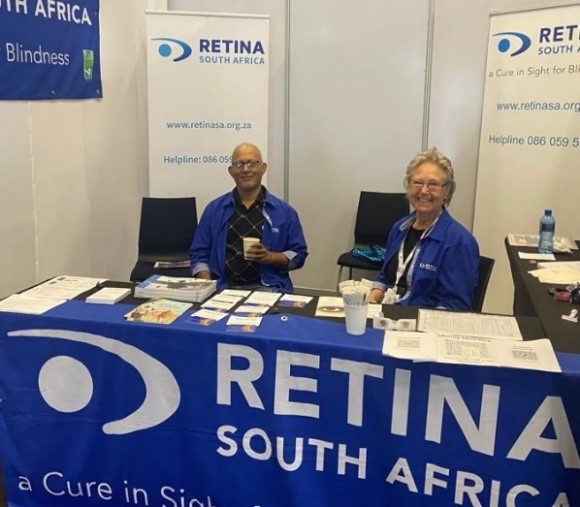
Renesh Lakhan (Left) and Karen Denton (Right)
The annual OSSA congress was held in Durban in March. Retina South Africa was represented by our Chairman, Manny Moodley, Claudette Medefindt, Karen Denton, and Renesh Lakhan. Both Karen and Claudette gave presentations to the Optometry program which were well received. Our table was well-frequented, and many new contacts were made. Pictured at our table are Renesh and Karen. Thank you Rhyno Kriek for the sponsorship of the table and delegates fees, and Coastland Hotel, Berea for their excellent hospitality.
PATIENT SUPPORT SERVICES
EDUCATION
All our past webinars or podcasts are available on YouTube. Go to www.retinasa.org.za -Tab Learn, and select webinars or podcasts. And choose from list. Are there any specific topics you would like us to feature or do you have an interesting story to tell? Contact us, please. These sessions will be via a ZOOM video, will be pre-recorded and available on our YouTube platform. PLEASE subscribe. When we have enough subscribers, we will start earning money from our webcasts.
Recommended this month- You, Your Eyes, Diabetes and Covid19.
From the Podcast list – Vision, How it works.
SOCIAL MEDIA
Please support us on our FaceBook, Twitter, YouTube, Instagram, and LinkedIn pages.
Join our dedicated WhatsApp groups for Youth, Adults, or Parents. This is an excellent information sharing platform, available to members of Retina South Africa. Contact Claudette on 0833065262.
Renesh Lakhan (Left) and Karen Denton (Right)
Join our dedicated WhatsApp groups for Youth, Adults, or Parents. This is an excellent information sharing platform, available to members of Retina South Africa. Contact Claudette on 0833065262.
RANDS AND CENTS
• Membership Fees
Have you paid your 2023 Membership fee of R240?. If you earn less than R10 000 per month you are eligible for a fee waiver. Please apply to ensure your membership stays current. Only members in good standing are eligible for free support services such as personal WhatsApp or Zoom counselling sessions with information specific to your condition. An invoice is attached to this ENews. Email: headoffice@retinasa.org.za
You also need current membership to be eligible for sponsored genetic testing, stand for a committee, or vote at the Annual General Meeting.
• Donations
A section 18a Tax deduction certificate is available for any donations exceeding R2500. You can donate any amount to us via our Donate Now button on our website www.retinasa.org.za or by EFT.
• MySchool/ My Planet
Please nominate Retina South Africa as a beneficiary, at no cost to you. Every time you swipe, we get a small donation from Woolworths, Engen, Waltons, and other participating retailers. Join at any Woolies store or online at www.myschool.co.za. You can have up to 3 beneficiaries. Please enrol your family and friends.
BEMYEYES
This free user-friendly App was previously used only by sighted volunteers to assist partially sighted users in any visual task. A new addition is a virtual volunteer which uses AI to describe text, navigate or any other task. Available from the Android or iOS store.
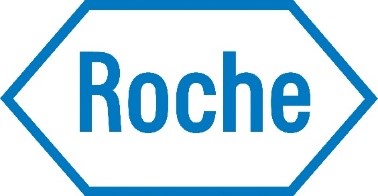
The production and distribution of this newsletter is made possible by an unconditional educational grant to Retina South Africa from Roche Products (Pty) Ltd The views expressed in the newsletter do not reflect the views of Roche Products (Pty) Ltd.
RETINA SOUTH AFRICA DISCLAIMER
Information disseminated by Retina South Africa is for information purposes only. Readers must discuss any intervention with their Eye Care Practitioner. Information in this E-News does not imply that Retina South Africa endorses any particular therapy, intervention or medication. Retina South Africa assumes no responsibility for the use made of any information provided in this newsletter.

